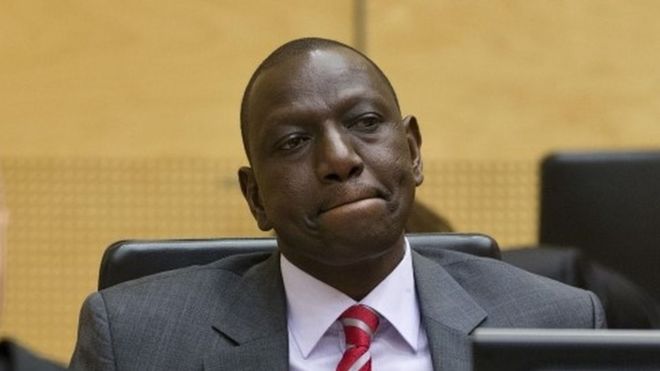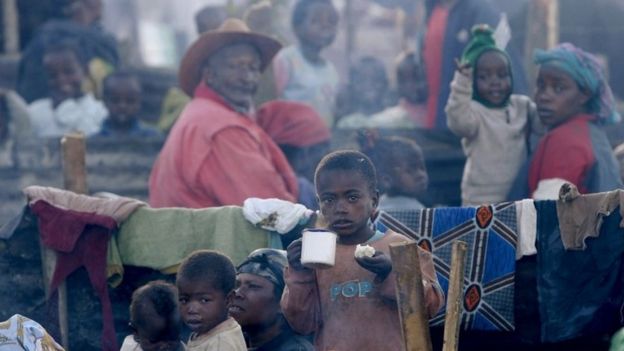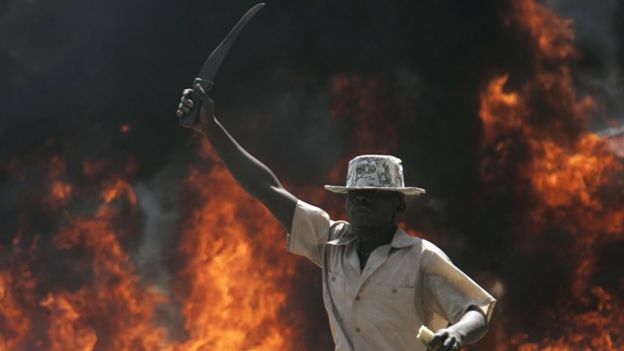- 3 hours ago
- Africa
 AFP
AFP
The International Criminal Court has thrown out the case against Kenyan Deputy President William Ruto.
The court ruled there was insufficient evidence, but it refused to acquit him.
In a split ruling, one judge declared it a mistrial because of a "troubling incidence of witness interference and intolerable political meddling".
Mr Ruto denied murder, deportation and persecution charges during violence that followed the 2007 elections in which about 1,200 people were killed.
Kenya's President Uhuru Kenyatta welcomed the ruling, saying the trial had been a "nightmare" for the nation.
Mr Ruto is one of the most senior politicians to be tried by the ICC.
In 2014, the prosecutor dropped similar charges against Mr Kenyatta, alleging that witnesses had been intimidated to make them change their testimony.
The case against Mr Ruto's co-accused, journalist Joshua arap Sang, was also dismissed.
Mr Ruto and Mr Kenyatta were on opposite sides of the 2007 election, but formed an alliance that won the 2013 election.
There has not been a single conviction over the Kenyan election violence, which lasted for four months after December 2007.
 Reuters
Reuters AP
AP
A lawyer for the victims, Nelly Warega, said the ruling was a "huge disappointment" and they would consider appealing against it.
"We believe that people need to be held accountable," she said.
Mr Ruto's supporters burst into celebrations after the verdict was announced, reports the BBC's Wanyama wa Chebusiri from his home town of Eldoret in western Kenya.
The prosecution case Mr Ruto was dogged by repeated setbacks.
In February judges at the ICC barred the use of recanted testimony, meaning that prior recorded witness statements could not be used by prosecutors.
Several key witnesses in the case have changed their statements, which prosecutors said was due to intimidation and bribery.
Mr Ruto's lawyers said he should be acquitted because so many key prosecution witnesses either dropped or changed their original statements.
ICC prosecutor Fatou Bensouda acknowledged that the loss of witnesses weakened the case against the deputy president - but she argued there still remained enough evidence to proceed with the trial.

No comments:
Post a Comment